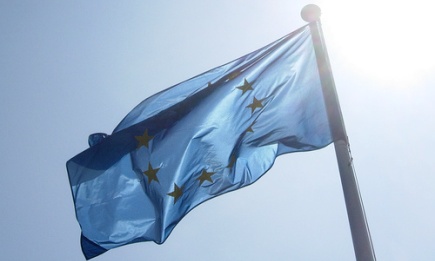HE competition contradicts European values

Atle Nyhagen,
As a consequence policymakers urge universities to competeinternationally along dimensions of ratings, rankings, benchmarksand citation indexes. Meanwhile, the traditional European idea ofcreating an egalitarian higher education system is undermined asresources are channeled towards ‘successful’ institutions. You canread his full opinion piece here:
US model threatens European traditions
Regions are becoming ever-more important in the ongoinginternationalisation and globalisation of higher education andresearch. In this process one region, the United States, has for along time set the terms of the debate, especially regarding its topresearch universities. This includes the ongoing construction ofthe European Higher Education Area and the European ResearchArea.
References to the celebrated elite universities of the US arefrequently encountered in speeches from central actors in thehigher education and research policy sector. The American system -the high quality of US research universities, the diversity ofinstitutions and their ability to set the research agenda globally- has been held up as an exemplary model for Europe to learn from,perhaps even to copy.
Mimicking the American system
Europe’s potential for taking a more prominent role incompetition for global leadership lies in the creation of a morediversified system akin to the American system. By copying and thuscompeting with US universities, the hope is that Europe willsucceed in comparison with both the upcoming East and the modelideal of the West.
What has been the result of a long historical process in the USis to be used as a guide for making sweeping changes in Europewithin a much shorter time frame. Analyses of how the systems inthe two regions have followed different historical paths, and howthey as a consequence may call for different kinds of reforms andreact differently to shifting relations between knowledge andpolitics, is missing from the political rhetoric.
Accordingly, the presence of the US model, at least in thepolitical debate about university reforms, is mainly centred oncompetition and concentration of resources. The reforms arepromoted at the regional level of the European Union, but also atthe level of nation states as national strategies.
Increased competition en vogue
Increased competition between institutions and more selectivechannelling of resources to a top-tier of institutions is supposedto remedy some of the effects the organisation of the universitysector has created, where Europe as a region and its nation statesare lagging behind in global rankings.
Whether it is at the European level or at nation state level,the notion of a knowledge economy is central to this restructuringor transformation of the sector. In the knowledge economy exposureto markets is central and this in turn demands a new kind ofgovernance or coordination of the sector.
Universities are to become strategic actors where success ismeasured by new governance tools such as ratings, rankings,benchmarking and citation-indexes. These tools are premised on thenotion of a competitive field where networks and money-chasingacross national borders becomes imperative for success.
The belief in the need for change and in the appropriate wayforward is strongly expressed by international and supra-nationalorganisations including the European Union, and especially theEuropean Commission, where this is seen as a way to secure Europe’seconomic position in the world.
The other side of the coin
The other side of the coin is that this competition threatens toundermine the central values of a majority of the nation states ofEurope.
Europe’s own history of social recruitment and emphasis onpopular enlightenment, as well as the regional commitments ofhigher education institutions and the varieties of nationalpriorities in terms of internationalisation, would be amongthose.
Most of the higher education systems in Europe have been ratheregalitarian when it comes to spreading resources amonginstitutions, thus creating a broad knowledge base due to lessconcentration in terms of resources, either among institutions oramong disciplines.
Integrating large parts of the population in the development anddissemination of knowledge is also a trait shared among severalcountries.
It could therefore be argued that a European tradition with anemphasis on ‘knowledge distribution’ is undermined in the newcompetitive environment envisaged in the current universityreforms. In terms of capacities for innovation and economicprogress this egalitarian tradition might also be regarded as anadvantage and not only a liability.
Knowledge economy vs. knowledgedistribution
The notion of solidarity, which has had a strong base inEuropean democracies, is also threatened by the newcompetition.
If European regionalism is premised on the notion of aglobalisation driven primarily by for-profit motives, thetraditional academic understanding of internationalisation as a wayto foster cooperation and trust – an idea that was central to thecreation of the Bologna process – is undermined as an alternativeto global development.
The tradition of knowledge distribution is, of course, alsohighly relevant in terms of global challenges.
When it comes to mobility and exchange of students, the fundingmechanisms within different regions are also relevant. The pressurefor resource concentration is at present followed by large budgetcuts, which require alternative routes to incomes for researchuniversities.
Relevance of social sciences questioned
As in the UK the increase in tuition fees among universities ismirrored in the recent action of public universities in the US.Paying the market price for education has been the privilege ofprivate universities. In Europe most of the funding sources of itsmainly public universities has come from government.
Lastly, the new inequality that follows from increasedcompetition and the creation of hierarchies brings into questionthe status of different disciplines.
At present the social sciences and humanities are facing severecuts and their role as carriers of democratic dialogue and socialstability is threatened. But such a threat would also be a threatto the cultural heritage of Europe and its role in furthering thecase for democracy.
Meest Gelezen
Vrouwen houden universiteit draaiende, maar krijgen daarvoor geen waardering
Wederom intimidatie van journalisten door universiteit, nu in Delft
‘Burgerschapsonderwijs moet ook verplicht worden in hbo en wo’
Raad van State: laat taaltoets nog niet gelden voor hbo-opleidingen
Hbo-docent wil wel rolmodel zijn, maar niet eigen moreel kompas opdringen

